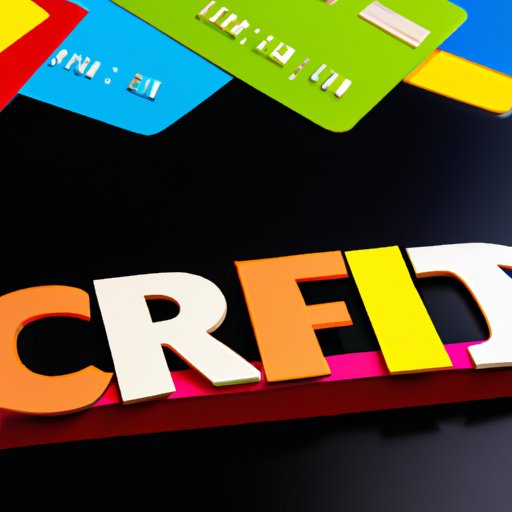Introduction
Building a good credit score is an important part of financial health. Many people don’t understand what credit is or how it works, which can make it difficult to build a good credit score. This article will help you understand the basics of credit and how to start building a strong credit history.
Research the Credit Landscape
The first step in building a good credit score is understanding the different types of credit available. There are two main types of credit: installment credit and revolving credit. Installment credit involves borrowing a set amount of money and repaying it over a set period of time, such as with a car loan or mortgage. Revolving credit involves borrowing a set amount of money and paying off the balance each month, such as with a credit card. Each type of credit has its own benefits and drawbacks, so it is important to research and understand them before deciding which type is best for you.
Check Your Credit Score
Before you can begin building credit, it is important to know where you stand. You can obtain a free copy of your credit report from one of the three major credit bureaus: Equifax, Experian, and TransUnion. Your credit report will include information about your current and past accounts, payment histories, credit inquiries, and more. It is important to review your report carefully to ensure all information is accurate.
Start Small
Once you have reviewed your credit report, it’s time to start building credit. If you have limited or no credit history, it is best to start small. A secured credit card is a great option for those just starting out, as they require a cash deposit that acts as collateral in case of default. Another option is to take out a small loan, such as a personal loan, which can help you establish a good payment history.
Pay On Time
Making payments on time is essential for building a good credit score. To make sure you never miss a payment, it is important to create a payment schedule. This should include the date, amount, and recipient of each payment. Additionally, setting up automatic payments for recurring bills can help you stay on top of your finances.
Monitor Your Progress
As you start building your credit, it is important to monitor your progress. You can track your credit score by signing up for a service like Credit Karma or Credit Sesame. These services provide free access to your credit score and report, allowing you to monitor any changes over time. Additionally, it is important to ensure all information on your credit report is accurate, as mistakes can significantly impact your score.
Use Credit Responsibly
It is also important to use credit responsibly. This means avoiding taking on too much debt and paying off balances in full each month. Additionally, it is important to be aware of accruing interest, which can add up quickly if not paid off in a timely manner. Finally, it is important to keep track of your spending and ensure you are not overspending.
Conclusion
Building a strong credit history is essential for accessing loans and other financial services. To start building credit, it is important to understand the different types of credit available, check your credit score, start small, pay bills on time, monitor your progress, and use credit responsibly. With this guide, you can take control of your financial future and gain the financial freedom you deserve.
Resources for further assistance include:
